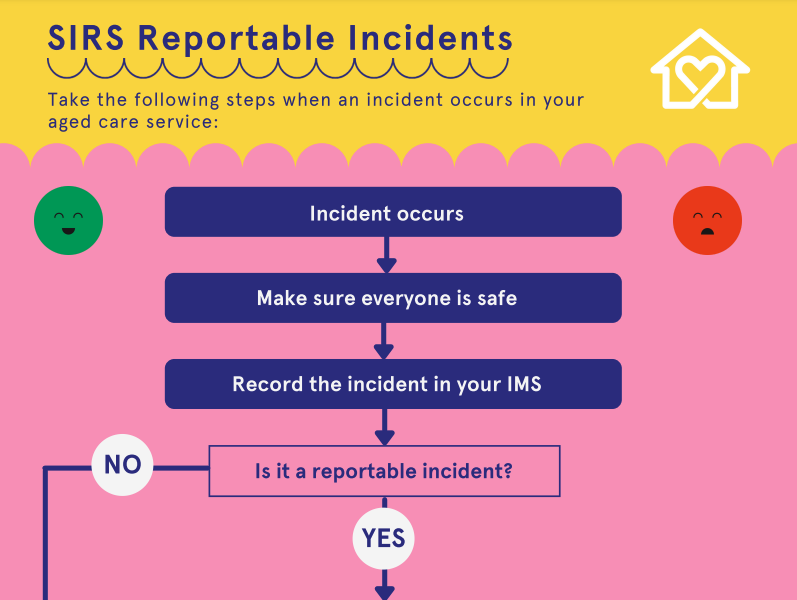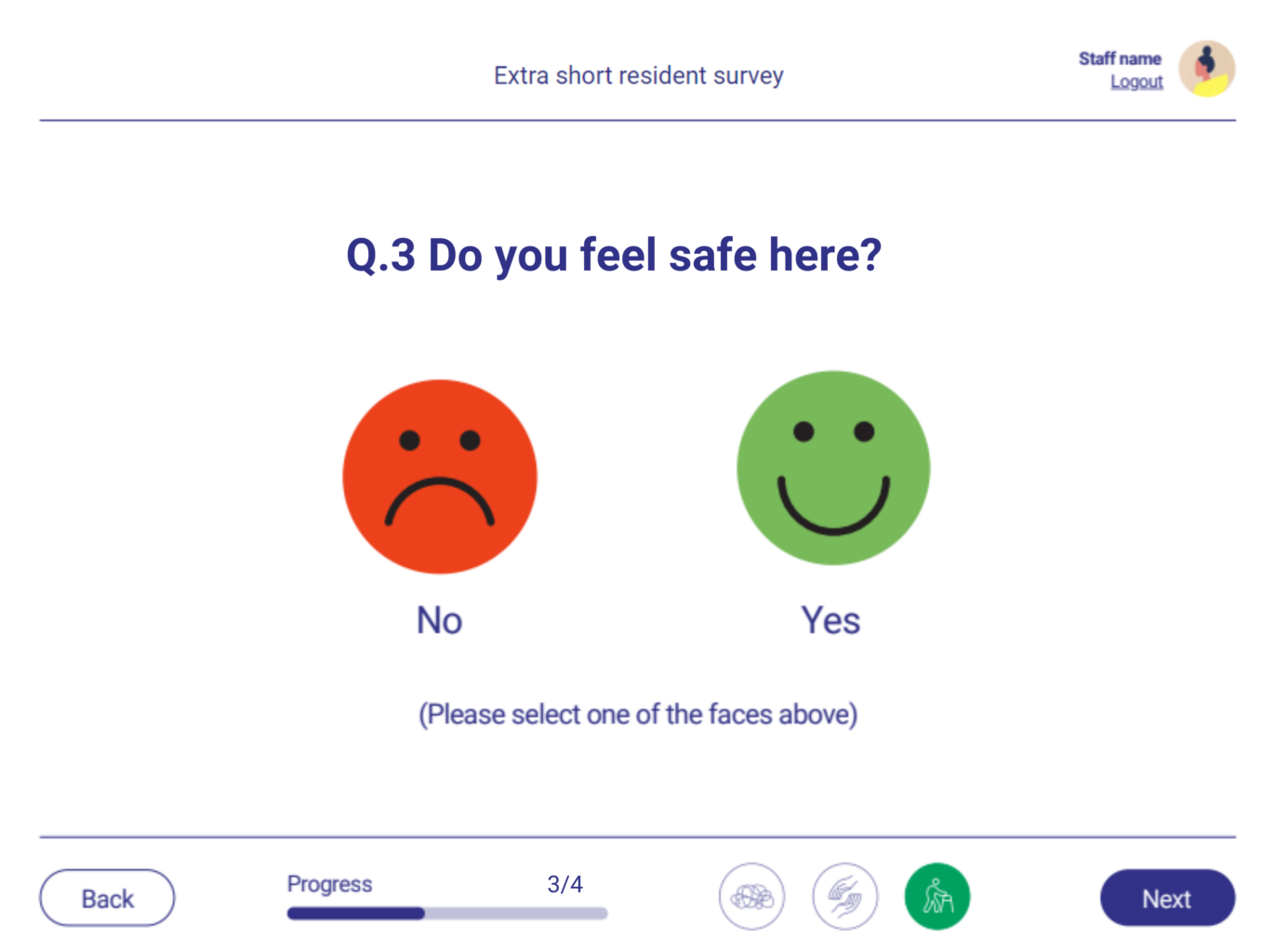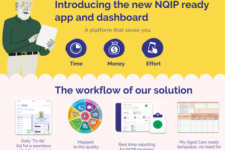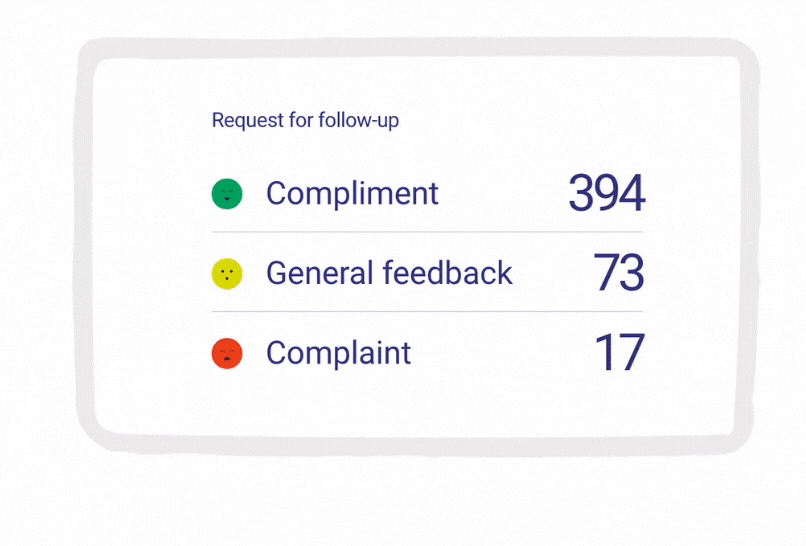
The commencement of the Serious Incident Reporting Scheme (SIRS) and its requirements has understandably been a daunting time for many aged care providers.
In understanding the SIRS, CarePage seeks to work alongside providers as they endeavour to navigate this phase, especially with the commencement of Priority 2 reporting from October 1. Let us guide you with SIRS compliance to achieve SIRS confidence.
SIRS in a snapshot
The SIRS aims at combating cases of abuse in Australian aged care facilities. Functionally, the SIRS is seeking to ensure what providers are already onboard with, to ensure the health, safety, wellbeing and quality of life of residents, and that providers have effective incident management systems (IMS) in place to achieve this.
The large amounts of information given to providers has meant there is a lot to digest.
When considering provider obligations, a starting point is to look at the integral purpose of SIRS, which is to achieve efficiencies in reporting, risk assessment and prevention.
Allowing providers and consumers to arrive at the lowest possible amount of incidents, and as close to eradicating these as possible.
It is in this pursuit that SIRS seeks to ensure providers strive to have the most comprehensive and efficient systems in place.
To capture and identify all the information necessary surrounding incidents, in the most timely way, provides the best possibility of preventing them.
October 1, Priority 2 Reporting
Commencing October 1, 2021, in addition to reporting Priority 1, Priority 2 incidents must be reported to the Commission within a 30 day timeframe of becoming known.
Priority 2 incidents are defined exactly as, “An incident that does not meet the criteria for a Priority 1 incident.”
A Priority 2 reportable incident, includes incidents that result in a low level of harm to recipients. For example, where a care recipient is briefly shaken or upset. Incidents where medical treatment is not required are also likely to be Priority 2. Providers should be mindful that the absence of visible physical harm does not automatically preclude an incident from being assessed as a priority 1 reportable incident.
In circumstances where you are unsure whether the harm to the care recipient is low, it may be reasonable to assess the incident as a Priority 1 incident.
Please see our recent article detailing specifically what constitutes a reportable incident or visit the SIRS website.
We’ve also created a downloadable infographic to help support your decision making.

Early Incident Identification
To meet the Provider obligations set out by the SIRS, in relation to P1 and P2 reporting, as well as the end result of significant prevention of incidents, we can examine the Commission’s expectations on what preventative and effective risk management systems/practices are required.
The Commission highlights that effective incident management allows for data to guide improvement and have a consumer focussed approach to aged care. A Provider’s incident management systems are a core focus of monitoring and assessment for the Commission and another reason to treat them with priority, care and investment.
Ensuring you have the optimal systems and practices, is two-fold, it ensures meeting established requirements and sows into the long-term prevention of incidents, resulting in increased benefit for both staff and consumer alike.
Effective incident management is Great Care and Good Business at its best
IMS compels a systemic approach to reducing the risk of incidents occurring, without heavily relying on one or two managers. It also importantly provides guidance and a voice to consumers, family and staff with the handling of an incident.
And importantly, the IMS can guide the timely resolution of incidents to the satisfaction of both consumer and Provider, and in the end, provide the pathway to unifying data and action to prevent incidents from recurring, to the point of a significant reduction in incidents.
Feedback Channel Overload and Slipping Through the Cracks.
It is important to discuss the pitfalls of an unsophisticated IMS. While the sincere hope by many is to have an IMS that meets all the requirements, there are dangers of vital information slipping through the cracks when a system is not optimal.
Without adequate systems to capture, monitor, identify and report it leaves providers at risk of SIRS related feedback falling through the cracks.
When collecting feedback as required to monitor customer experience across residential care homes, a mandatory requirement, it’s via this channel that from time to time allegations of physical or verbal abuse have arisen from residents/clients or others in the community.
An example from a client: Mrs Jones, provided her feedback, detailing her claims and concerns about an incident where she was physically and verbally abused by a certain RN on night duty. Mrs Jones had written her concerns in the ‘open ended field’ that came at the end of a survey.
The first 10 questions consisted of a rating scale, where one question asked “Do you feel safe here?”, with the final 2 questions open ended. And it wasn’t until the end did she elect to share the details of what happened to her. The feedback survey formed part of the company wide annual resident feedback survey review, where all the feedback was aggregated into one report. As the meeting had run long, the team focussed on the risk management questions in the quantitative section and put off going through the “general free text field”. It wasn’t until 6 months later where a quality manager was auditing the “open ended analysis” that the incident was able to be reported.

CarePage is Ready to Support your organisation
At CarePage our Feedback and complaints modules can help organisations identify potential and immediate actions, with ease, efficiency and timeliness. Our modules can help organise data, with managers and relevant personnel being alerted in real time, making the management of information and whether it falls under the mandatory reporting requirements of SIRS easier.
Our modules always operate in real time and can be customised to fit acutely within your organisation’s operating and functional needs. Managers are notified as soon as a complaint is submitted on the feedback forms by family, staff or residents. This data can be embedded in a website and directly feed into our complaints module.
Interested to see more? Our systems have been seamlessly engineered to receive data, organise it and ensure that it is flagged to the appropriate parties, effortlessly and immediately.
Be Confident and Compliant with CarePage
The key to success with SIRS comes down to having a robust system in place that can link, report, analyse and use data across feedback and complaints so that your organisation is always moving towards continuous improvement.
Does this sound like your organisation?
If you answered no, don’t worry, our aged care team can help!
At CarePage our role is to provide explanation and support so that the adoption of our services and technology is easy, fluid and seamless.














